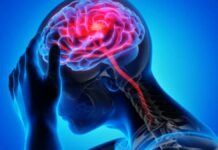
Sheffield: A 19-year-old man in China had amnesia since the age of 17. On examination, it was found that he was suffering from dementia. This information was obtained from a case study recently published in the Journal of Alzheimer’s Disease. After a series of tests, researchers at the Capital Medical University in Beijing have detected ‘probable’ Alzheimer’s disease in a teenager. If the conjecture is correct, he would be the youngest person to be struck down by this deadly disease of dementia. Although the exact causes of Alzheimer’s are still largely unknown, a characteristic of the disease is a build-up of two proteins in the brain: beta-amyloid and tau. In people with Alzheimer’s, beta-amyloid is usually found in large amounts on the outside of neurons (brain cells), and ‘clumps’ of tau are found inside axons, the long, thin projections of neurons.
World’s youngest Alzheimer’s patient
However, scans failed to show any signs of these symptoms in the 19-year-old’s brain. But the researchers found abnormally high levels of a protein called p-tau181 in the patient’s cerebrospinal fluid. This usually occurs before two tangles form in the brain. Almost all cases of Alzheimer’s disease in people under the age of 30 are due to an inherited faulty gene. In fact, the last youngest case – 21 years old – also had a genetic cause. Three genes have been associated with Alzheimer’s disease in the young: amyloid precursor protein (APP), presenilin 1 (PSEN1), and presenilin 2 (PSEN 2). These genes are involved in the production of a protein fragment called a beta-amyloid peptide, which is a precursor to the previously mentioned beta-amyloid.
Heredity is the main reason
If the gene is defective, it can lead to abnormal deposits of beta-amyloid in the brain – which is a hallmark of Alzheimer’s disease as well as a target for treatments, such as the recently approved drug – ‘lecanemab’. ‘. People only need one of the APP, PSEN1 or PSEN2 to develop Alzheimer’s disease, and their children have a 50:50 chance of inheriting the gene from them and also developing the disease.
Heredity is not the reason
However, a genetic cause was ruled out in this latest case because researchers who studied the patient’s whole-genome sequence failed to find any known genetic alterations and no one in the teen’s family had Alzheimer’s disease or dementia. There is no history of The young man also had no other illness, infection, or head trauma that could explain his condition. It is clear that whatever form of Alzheimer’s he has, it is extremely rare.

Severely impaired memory impairment
At the age of 17, the patient started having problems concentrating on his school studies. A year later, he had a loss of short-term memory. He could not remember whether he had eaten food or done his homework. His amnesia became so severe that he had to drop out of high school (he was in his final year). Alzheimer’s disease is suspected by standard cognitive tests used to detect memory loss. The results suggested that his memory was severely impaired. Brain scans also showed that his hippocampus – a part of the brain involved in memory – had shrunk. This is a typical early sign of dementia.
Still a mystery
A brain biopsy is very risky, so it is difficult to understand the biological mechanisms of dementia and this matter remains a mystery in medicine. Cases of early-onset of Alzheimer’s disease are increasing in patients. Sadly, this is not the last we hear about such a rare case.






































